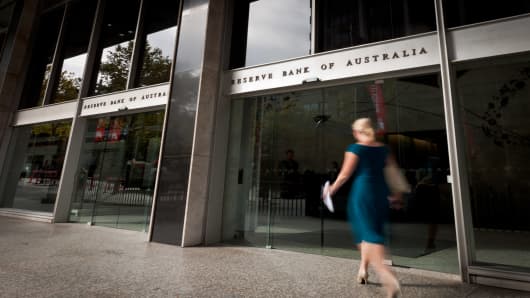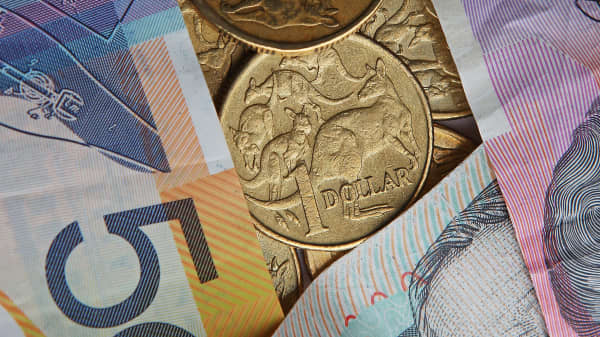The Reserve Bank of Australia (RBA) kept interest rates unchanged at a record low 2.75 percent on Tuesday, in line with market expectations that a weaker Australian dollar would prevent them from making a cut.
July's decision marks the second month in a row that the RBA has left interest rates unchanged after making a 25 basis point cut in May - it's only move this year. The central bank, however, maintained its easing bias saying that there was scope for future easing and it expects the Australian dollar to fall further.
(Watch Now: Expect Another RBA Rate Cut Soon: Pro)
Matthew Circosta, economist at Moody's Analytics said the RBA's decision was on the mark with expectations because factors that led to rate cuts in the past no longer exist to the same extent.
"What was driving that [rate cuts] was the strength of Aussie dollar and some weakness in non-mining sectors of the economy," Circosta told CNBC.
"The Aussie dollar is about 11 percent off in over the last three months and we are starting to see some green shoots in the retail and housing space - signs are looking good and that's allowed the RBA to stay on the sidelines."




